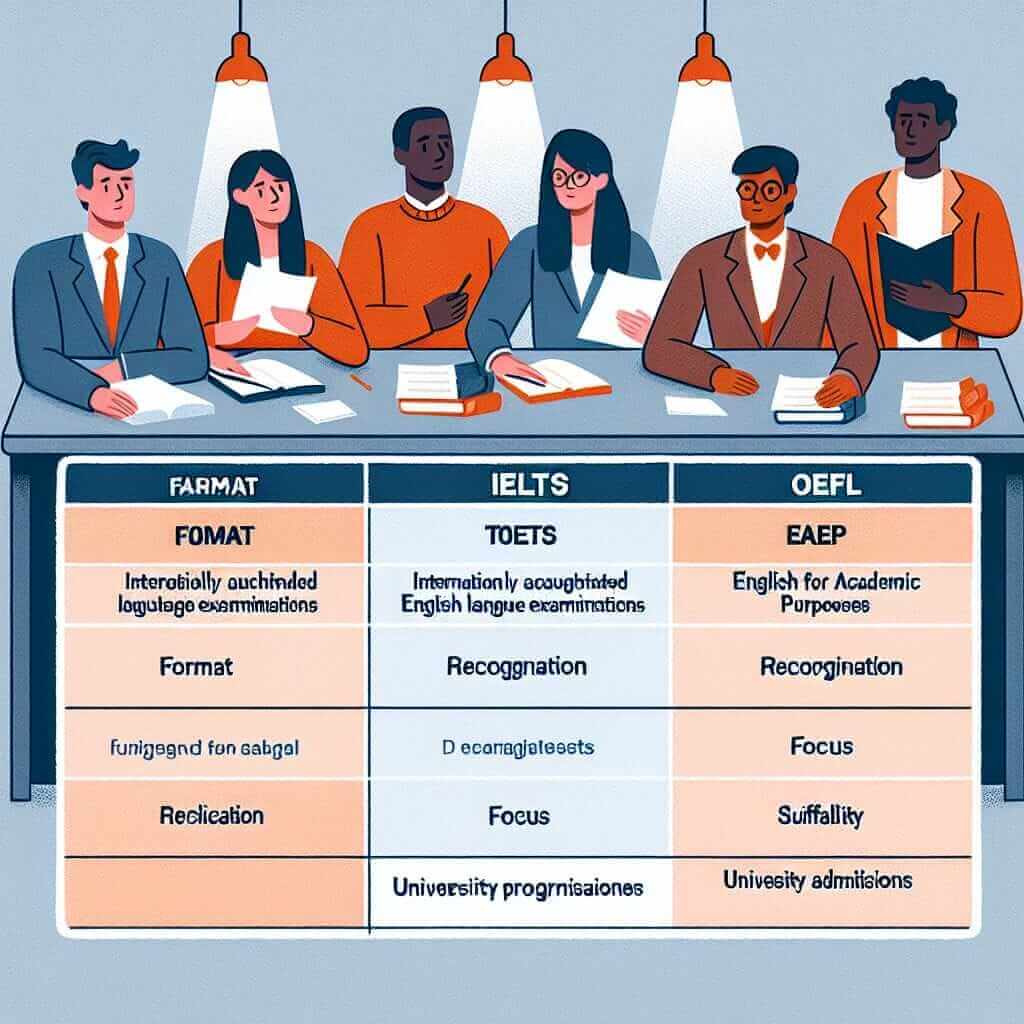In the world of English language assessment, IELTS and TOEFL reign supreme, particularly for academic purposes. But recently, there’s been a growing buzz about English for Academic Purposes (EAP) programs. Could they actually replace these standardized tests? Let’s delve into the debate.
Understanding IELTS, TOEFL, and EAP
Before we jump into the replacement debate, let’s clarify what each term encompasses:
- IELTS (International English Language Testing System): A globally recognized test assessing English language proficiency across four skills: listening, reading, writing, and speaking. It comes in two formats: Academic and General Training.
- TOEFL (Test of English as a Foreign Language): Another widely accepted test, primarily internet-based (TOEFL iBT), evaluating English skills needed for academic success.
- EAP (English for Academic Purposes): These are specialized courses or programs designed to equip non-native English speakers with the language skills necessary for academic environments.
Can EAP Truly Replace IELTS or TOEFL?
The short answer is: not entirely. Here’s why:
- Standardization and Recognition: IELTS and TOEFL are standardized tests, meaning they are administered and scored uniformly worldwide. This uniformity makes them reliable benchmarks of English proficiency for universities and institutions globally. EAP programs, however, vary significantly in curriculum, intensity, and assessment methods.
- Global Acceptance: While EAP programs are gaining traction, IELTS and TOEFL remain the more widely accepted proof of English language proficiency for university admissions and visa applications in many countries.
- Specific Skill Assessment: IELTS and TOEFL are specifically designed to test a candidate’s English proficiency across all four language skills. While EAP programs aim to develop these skills, their assessment methods may not be as standardized or comprehensive as the dedicated language tests.

The Advantages of EAP
While EAP programs may not replace IELTS or TOEFL entirely, they offer significant benefits:
- Targeted Skill Development: EAP courses focus specifically on the language skills essential for academic success, such as essay writing, research paper structuring, lecture comprehension, and academic vocabulary development.
- Immersive Learning Environment: Many EAP programs offer an immersive experience, allowing students to practice English in academic contexts and interact with fellow non-native speakers.
- Preparation for Academic Culture: Beyond language skills, EAP programs often introduce students to academic culture, including research methodologies, plagiarism policies, and classroom etiquette.
So, Where Does EAP Fit In?
Instead of viewing EAP as a replacement, consider it a powerful complement to IELTS or TOEFL preparation:
- Pre-Test Preparation: Completing an EAP program before taking IELTS or TOEFL can provide a strong foundation in academic English, making the test preparation process smoother.
- Post-Test Enhancement: Even after achieving a desirable IELTS or TOEFL score, an EAP program can further refine students’ academic language skills and prepare them for the demands of university studies.
Conclusion
While EAP programs offer immense value in developing academic English skills, they are unlikely to fully replace the standardized and globally recognized nature of IELTS and TOEFL in the near future. However, EAP serves as an excellent complement, bridging the gap between general English proficiency and the specific demands of academic life. For optimal success, consider integrating both into your English language learning journey.